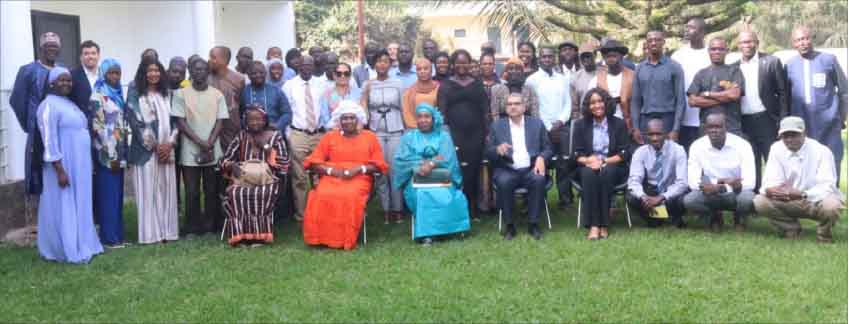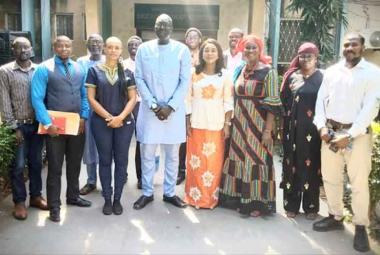By Anna Marie Valentine
Solar energy is one of the cleanest sources of energy, in terms of sustainability and the impact on the climate. It has become a sustainable means of electricity access. The Gambia has a huge potential for solar power generation due to its warm climate. The country is endowed with abundant solar radiation which is high through out the year and could be harnessed for a variety of uses.
It is along the above stated strategic objective of solar energy popularisation that Ministry of Petroleum and Energy (MoPE) in partnership with the International Solar Alliance ( ISA) and consultants from INENSUS, recently held a 2-day stakeholder consultation workshop on the development of a policy and regulatory framework for accelerating the deployment of solar energy facilities in The Gambia.
Kemo Ceesay, the Director of Energy at the Ministry of Petroleum, stated that the development and deployment of solar energy facilities needs to be supported by a robust policy and regulatory framework to achieve a sustainable energy future, as well as increase the public access to an affordable solar energy.
He explained that solar can be used for many applications; such as ongrid and offgrid including mini grid. He said it is also very important for our energy sector and as we move to cleaning the energy landscape to make it more green “As far as Gambia is concerned, we consider solar to play a very pivotal role in this drive,” Mr Ceesay asserted.
Mrs Onyi Iyizoba, the legal specialist from ISA, said the Alliance understands the fundamental role and the right policies and regulations in accelerating the deployment of solar energy. For this reason, he stated, they have commenced the regulatory support initiative geared towards providing member states the relevant technical assistance to address regulatory impedance to solar energy development in their respective countries.
She assured of ISA’s commitment to support the achievement of universal energy access in the country and in assisting the government of The Gambia to attain energy security.
“ISA aims to catalyse processes especially the regulatory underlined framework that will help to facilitate private investment in solar as well... We aim to work together to streamline the pathway to a systematic and impactful support to the sector by the ISA,” Mrs Onyi further explianed.
Mrs Amie Njie, Permanent Secretary at MoPE pointed out that the consultation workshop embodies President Barrow’s ambition to attain universal energy access by 2025, by exploring low-cost options in power generation so that NAWEC becomes an efficient and financially sustained utility.
She argued that despite Government’s significant efforts there is a need to have a diverse energy mix to increase access to clean and sustained energy supply.
PS Njie further highlighted that the first phase of the regulatory support aims to assess investors, potential challenges, including tariff regulations, permitting and licensing mechanisms, and to analyse existing and emerging policy, legal and institutional issues relating to the development of sustainable solar energy deployment.
“The second phase will cumulate in the formulation of the requisite policy and regulatory frameworks for sustainable solar energy deployment and deployment in The Gambia, as informed by the outcome of the assessments from the first phase,” the Permanent Secretary elucidated.







